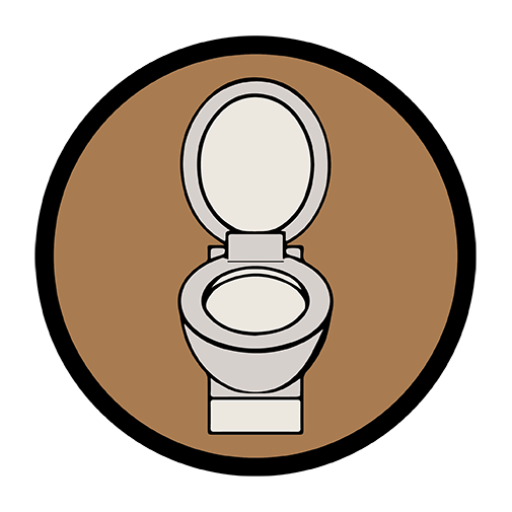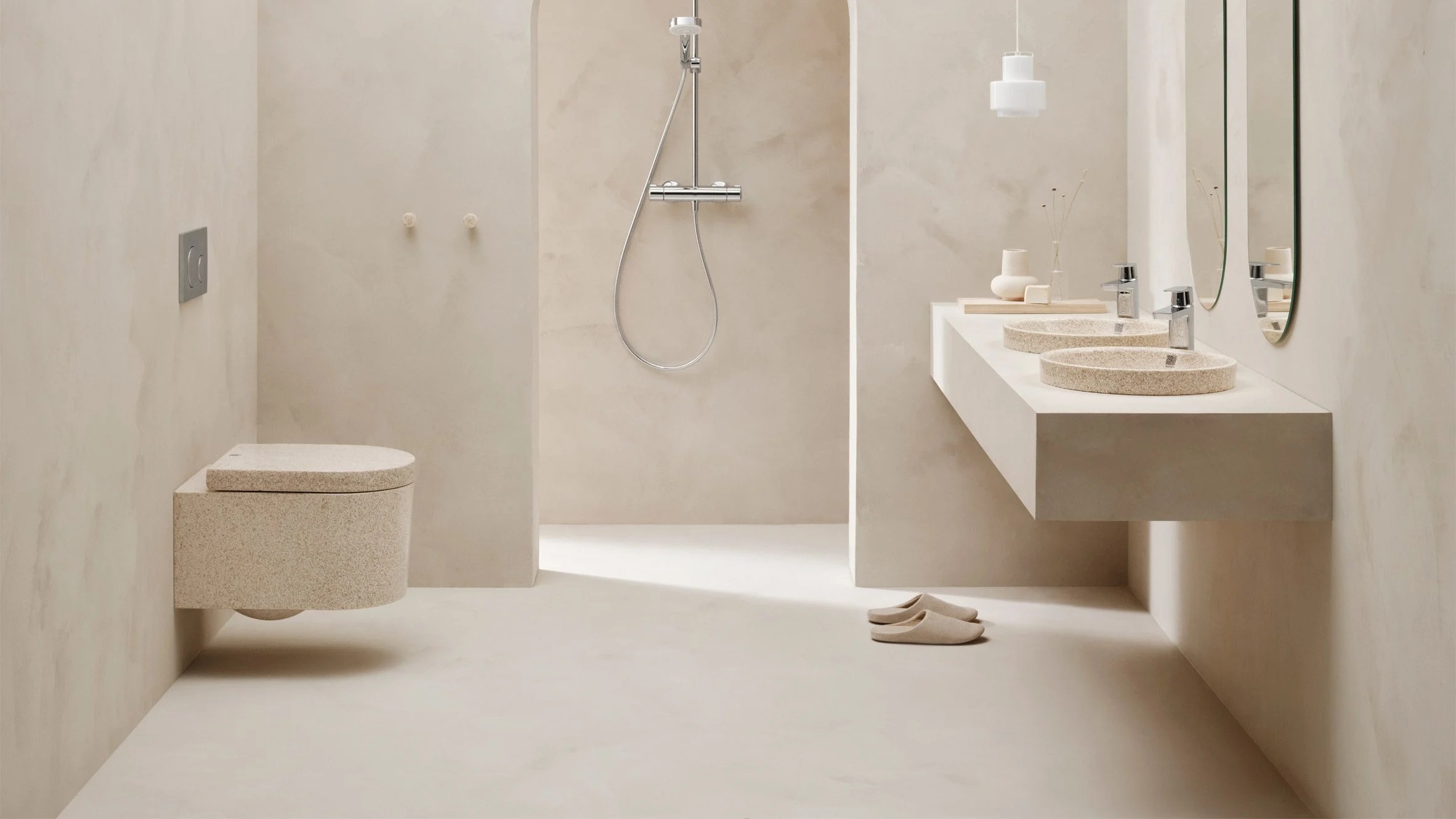Waterproof and unbreakable
Nowadays, wood is the last material you may consider for a toilet but the Finnish design company Woodio designed its toilet from the seat to the bowl in wood composite which produces 99% fewer emissions during production than ceramics.
As explained here, the wall-mounted toilet, known as Block, was created using a material that is around 80% wood by volume, including aspen from a nearby forest and scraps from the Finnish forest industry, and was designed by Woodio creator Petro Lahtinen.
The company says that these wood chips were combined with a mixture of bioplastic resins and fossil-based polyester to form a composite that is waterproof and “practically unbreakable”. According to Lahtinen, the manufacturing process uses a small amount of water and energy and produces the toilet without the use of heat.
“There is nothing wrong with ceramic itself”, he said. “It is the manufacturing process of the ceramics that causes the environmental impact.”
“Typically, industrial ceramics are fired at 1,500 degrees Celsius for at least 12 hours and this heat is produced typically by burning gas, which obviously causes considerable CO2 emissions”.
Overall, according to Woodio, their manufacturing process produces sanitaryware with 99 percent fewer emissions than conventional ceramic sanitaryware. This, however, ignores any emissions from the source or disposal of materials, which can significantly affect a product’s overall footprint.
“The savings are particularly focused on the gate-to-gate phase”, Lahtinen said.
“Even our products need to be transported and disposed at the end of life, and also raw material sourcing has to be included”.
Lahtinen created the Woodio composite material in 2017, and since then, the company has used an unique cast molding process to transform it into everything from bathtubs to wash basins.
“Basically we have developed moulds that can handle non-fluid raw materials”, Lahtinen said. “It is a really innovative method”.
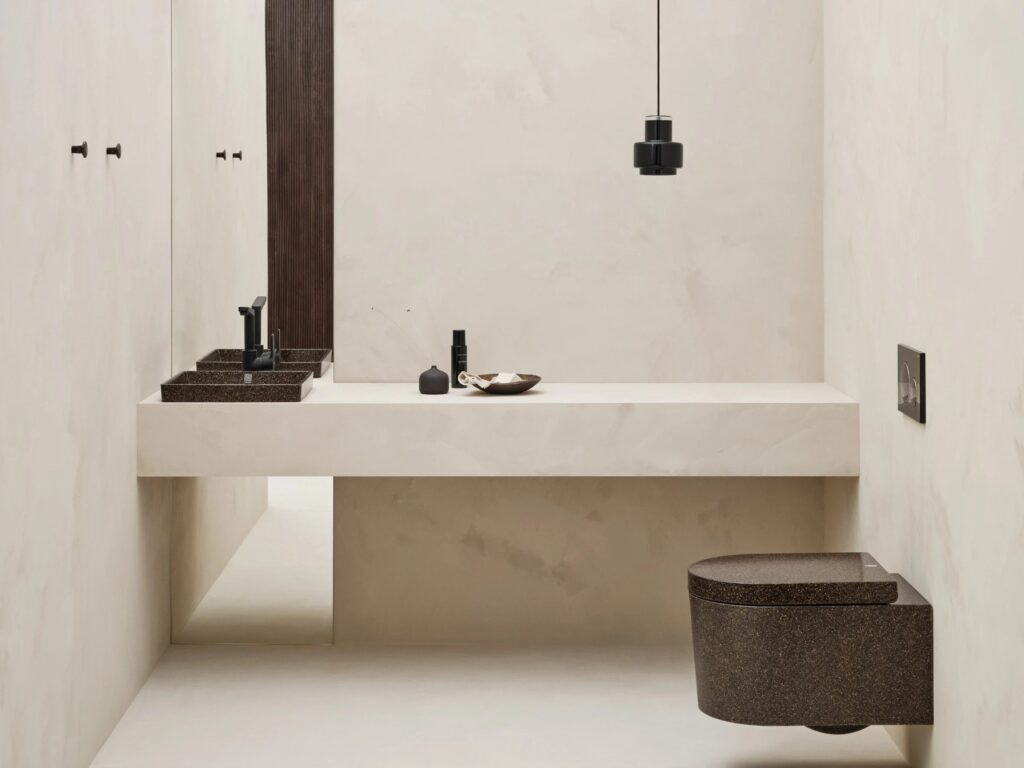
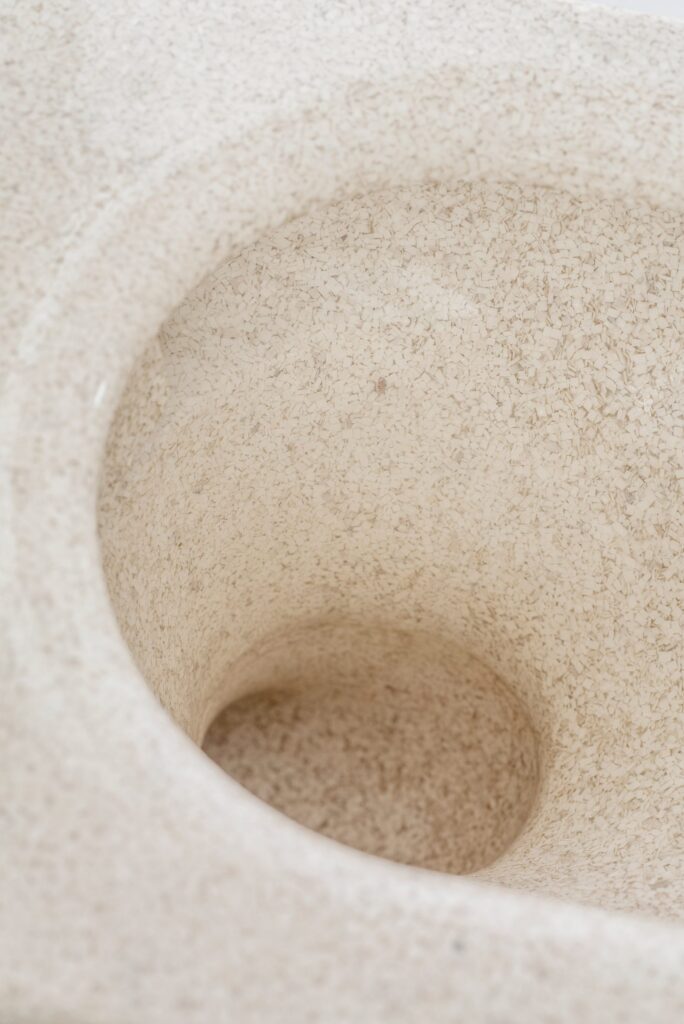
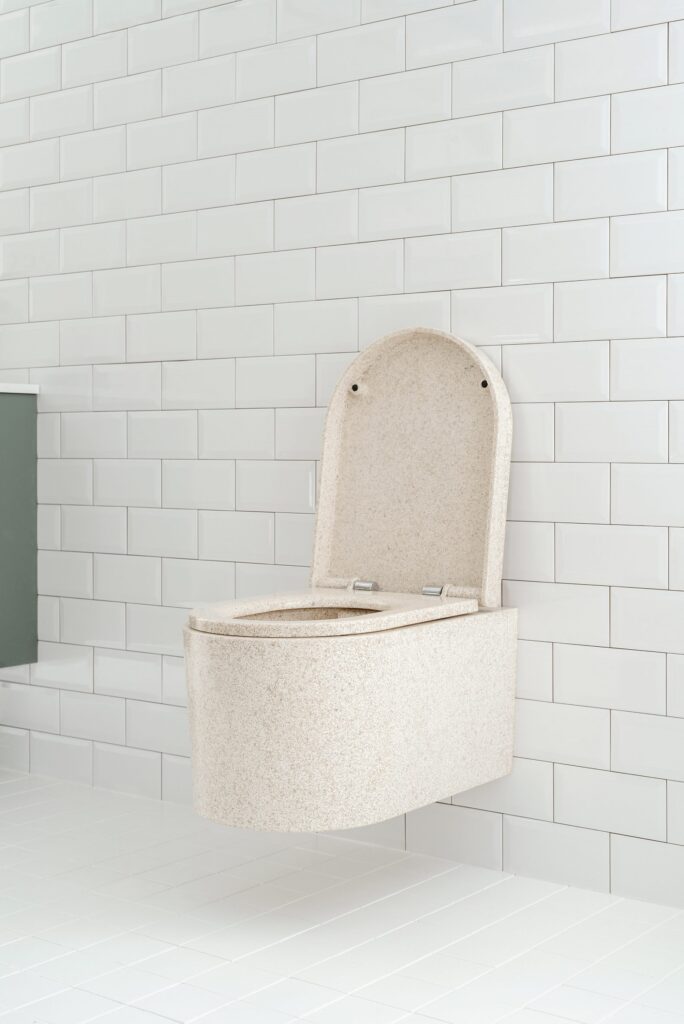
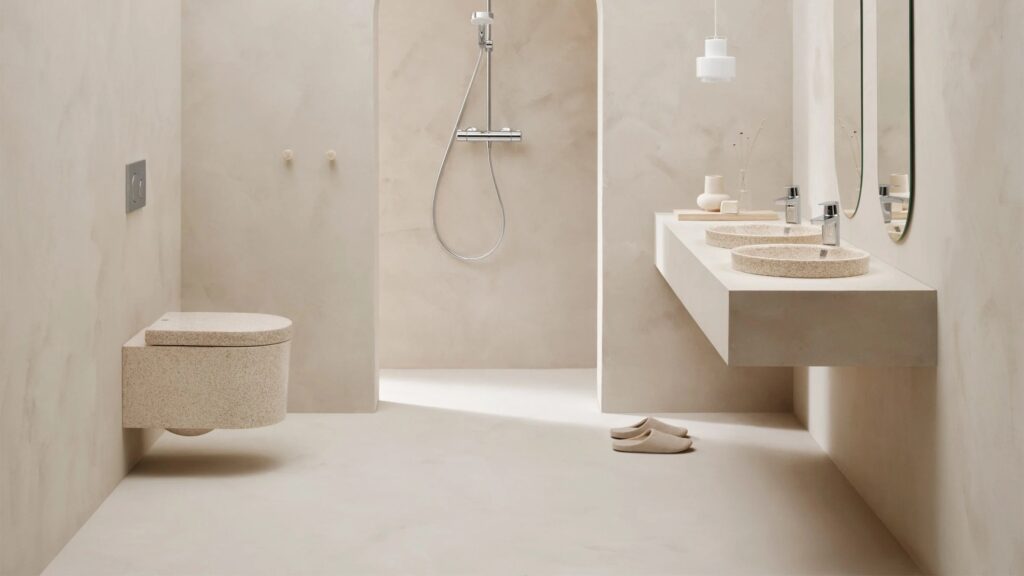
The Block toilet, created in conjunction with the Finnish design studio Pentagon Design over the course of three years, is the company’s most elaborate and challenging product to date. Although wood shavings and sawdust have long been used to aid in the breakdown of waste in off-grid composting toilets, Woodio asserts that its design is the “world’s first” flush toilet to be manufactured from the material.
Although the company plans to employ entirely bio-based resins once it moves to an industrial production in the coming years, the wood composite still depends on a number of fossil-based resources, including polyester resin as well as a variety of additives and surface treatments.
When the toilet reaches the end of its life, which typically lasts between 10 and 15 years but can be as long as 50, since the material is a composite will also make recycling the toilet nearly impossible.
In order to avoid the toilet from ending up in a landfill, Woodio contends that it can be burned for energy at the end of its useful life. However, this would cause the atmospheric release of both the fossil carbon and the carbon stored in the wood.
Prior attempts to improve the sustainability of toilets mostly concentrated on lowering or eliminating their water consumption. In contrast to a recent Samsung prototype, which burns waste into ashes, the Sandi concept toilet disposes of waste using sand and a miniature conveyor belt.
